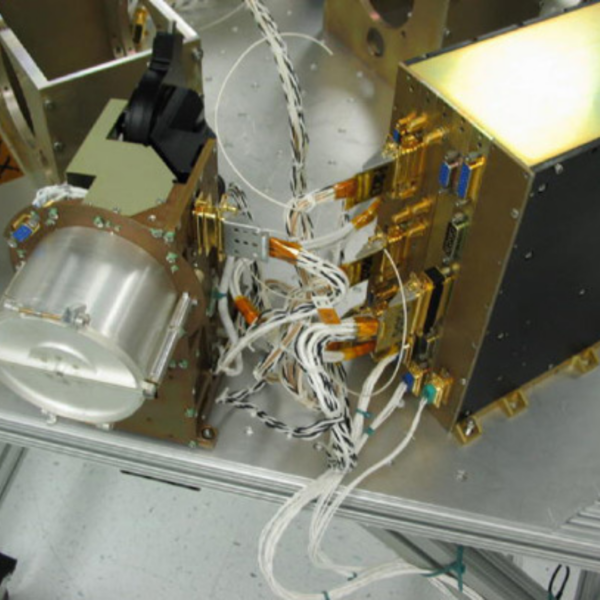Extensive expertise in space-flight electrical systems
The electrical system serves as the nervous system of a space-science instrument. It controls the devices that gather data in the form of physical measurements—for example, light levels or temperatures—and transmits this information to a central “brain.” This central depository then processes, formats, and sends the information as a digital signal to a ground station on Earth.
LASP’s electrical engineers specialize in the design, development, and testing of space-flight electrical systems. Our systems are intentionally designed to be flexible so that in-flight adjustments can be made to maximize scientific returns.
Our Electrical Engineering Group includes a wide range of technical experience, including digital, analog, and electrical systems engineering. Electrical systems engineers are big-picture thinkers who ensure that all mission requirements are met as the concept evolves from an initial prototype to the final flight design. Digital and analog experts work together to ensure that the physical measurements desired by the scientists are collected, converted, and transmitted accurately and that as much flexibility as possible is built into the measurement systems so that they can be adjusted in response to observations.
LASP’s technical capabilities include design of detector interfaces and subsystems, including low-noise, high-resolution sensor interfaces; low-voltage and high-voltage power supply design; digital-to-analog conversion; design of embedded digital logic and microprocessors; design of system-on-chip (SOC) logic using field-programmable gate arrays (FPGAs), digital signal processing, and testing of electrical systems to verify functionality. We also offer designer-independent FPGA verification, allowing us to designate one engineer to design the system and a second to independently verify its functionality. LASP also has developed a mixed-signal, radiation hard by design (RHBD) CMOS ASIC.

